Home>Articles>What Is The Best Flooring For A Basement Cement Floor?
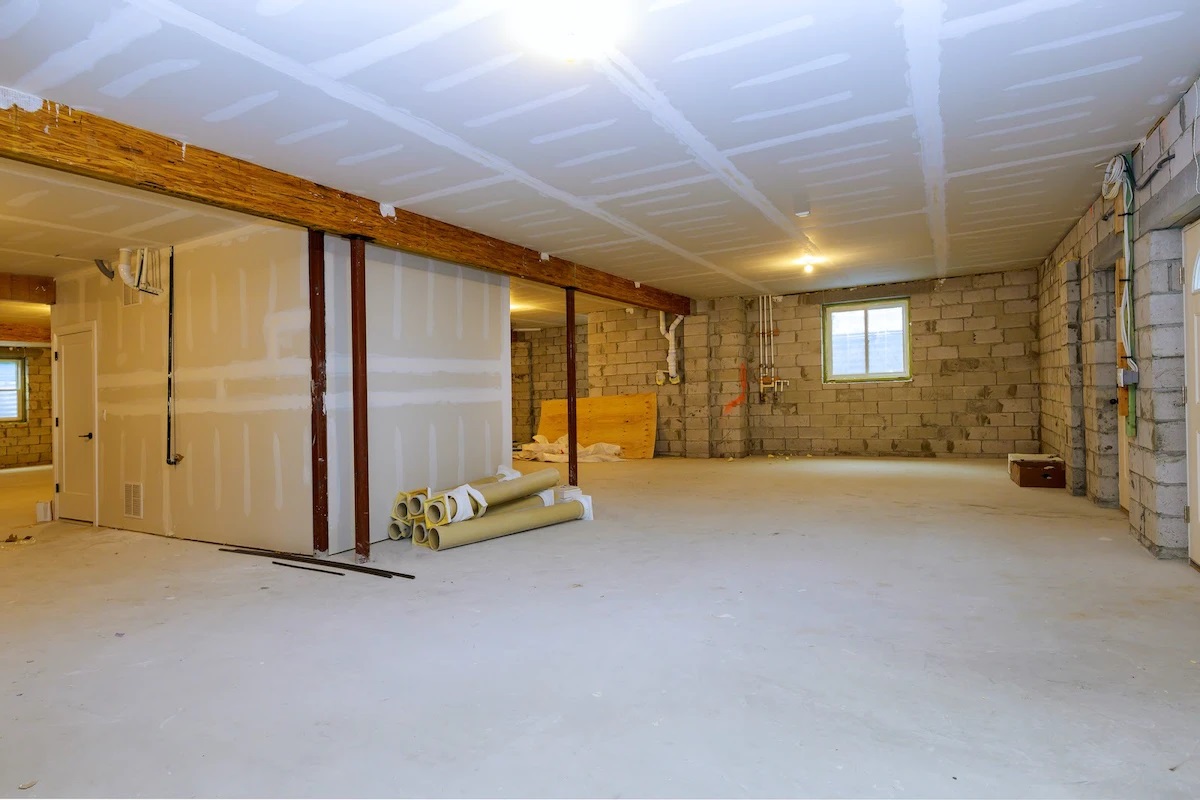

Articles
What Is The Best Flooring For A Basement Cement Floor?
Modified: October 20, 2024
Discover the best flooring options for your basement cement floor in this informative articles. From vinyl to epoxy, find the perfect solution for your space.
(Many of the links in this article redirect to a specific reviewed product. Your purchase of these products through affiliate links helps to generate commission for Storables.com, at no extra cost. Learn more)
Introduction: Importance of choosing the right flooring for a basement cement floor
When it comes to renovating or finishing a basement, one of the most important decisions you will make is choosing the right flooring. Among all the factors to consider, the condition of the basement floor is crucial. In many cases, basements have cement floors, which can pose unique challenges when it comes to selecting the appropriate flooring material. By understanding these challenges and making an informed choice, you can transform your basement into a functional and inviting space.
Basement floors are prone to moisture, as they are in direct contact with the ground. In addition, concrete is a porous material that can absorb water and allow it to seep through the floor. This makes it essential to choose a flooring material that is resistant to moisture and can withstand the potential for water damage. Ignoring this aspect can lead to mold and mildew growth, unpleasant odors, and even structural damage.
Durability is another key consideration when selecting flooring for a basement cement floor. Since the basement is often used for various purposes, such as a storage area, playroom, or home gym, the flooring should be able to withstand heavy foot traffic and regular use. It should be resistant to scratches, dents, and stains to ensure its longevity.
Installation ease is an important factor to consider, particularly if you are planning to install the flooring yourself. Basement floors are typically uneven, and the presence of pipes, utility lines, and other obstructions can complicate the installation process. Therefore, choosing a flooring material that is easy to install or requires minimal preparation can save you time, effort, and potential headaches.
The temperature and climate of your basement should also play a role in your flooring decision. Basements tend to be cooler and more humid than the rest of the house. Therefore, it is crucial to select a flooring material that is resistant to temperature fluctuations and moisture damage. This will help prevent issues such as warping, buckling, and expansion.
Cost is another important consideration when choosing the best flooring for a basement cement floor. Renovating a basement can be an expensive endeavor, and the cost of the flooring material, as well as installation, should fit within your budget. It is essential to weigh the overall cost against the desired durability, aesthetics, and longevity of the flooring.
In the following sections, we will explore some of the best flooring options for basement cement floors, taking into account the aforementioned factors. By understanding the unique properties and benefits of different flooring materials, you can make an informed decision that suits both your basement’s needs and your personal preferences.
Key Takeaways:
- Vinyl flooring is the top choice for basement cement floors, offering exceptional moisture resistance, durability, easy maintenance, and a wide range of design options. It provides a comfortable and long-lasting solution for transforming your basement space.
- Epoxy coatings provide a seamless, durable, and customizable solution for basement cement floors, offering excellent moisture resistance, low maintenance requirements, and endless design possibilities. Epoxy creates a modern and resilient space that enhances the aesthetics and functionality of your basement.
Read more: How To Paint A Basement Cement Floor
Factors to Consider
When choosing the best flooring for a basement cement floor, there are several factors that you should consider to ensure you make the right choice. These factors include moisture resistance, durability, installation ease, temperature and climate, and cost.
1. Moisture Resistance
Moisture is a common problem in basements, and it is essential to choose a flooring material that can withstand the presence of moisture. Concrete floors are porous and can absorb water, which can lead to issues like mold, mildew, and floor damage. Look for flooring options that have moisture-resistant properties, such as vinyl or epoxy coatings.
2. Durability
Basements can be high-traffic areas, especially if you plan to use the space for various purposes like a home gym or a play area. It’s crucial to choose flooring that is durable and can withstand heavy foot traffic. Look for materials that are resistant to scratches, dents, and stains, like laminate or engineered wood flooring.
3. Installation Ease
Basement floors can be uneven, and there may be obstructions like pipes or utility lines that need to be worked around during installation. Consider the ease of installation when choosing your flooring material. Some options, like carpet tiles or vinyl plank flooring, offer simple and hassle-free installation, making them great choices for DIY projects.
Read more: What Is The Best Flooring For A Basement
4. Temperature and Climate
Basements tend to be cooler and more humid than other areas of the house. It’s important to choose a flooring material that can withstand temperature fluctuations and resist moisture damage. Materials like vinyl or epoxy coatings are known for their ability to handle these conditions without warping, buckling, or expanding.
5. Cost
Budget is always a factor when making any home improvement decisions. Determine your budget for the flooring project and look for options that fit within it. Remember to consider not only the cost of the materials but also the cost of installation, as some materials may require professional installation, while others can be easily installed by homeowners.
By considering these factors, you can narrow down your options and make an informed decision when choosing the best flooring for your basement cement floor. It’s important to find a balance between functionality, durability, and cost to create a space that is both visually appealing and practical for your needs.
Moisture Resistance
Moisture is a common issue in basements, making it crucial to choose a flooring material that can withstand the presence of moisture. Concrete floors are porous and prone to absorbing water, which can lead to a range of problems such as mold, mildew, and floor damage. When selecting a flooring option for your basement cement floor, it is essential to consider its moisture resistance capabilities.
One popular choice for moisture-resistant flooring in basements is vinyl flooring. Vinyl flooring is available in various styles, including vinyl sheets, vinyl planks, and vinyl tiles. One of the main advantages of vinyl flooring is that it is highly resistant to moisture and water damage. Vinyl is manufactured with water-resistant properties, preventing water from seeping through and causing damage to the floor. Additionally, vinyl is easy to clean, making it an excellent choice for areas that are susceptible to spills or high humidity levels.
Laminate flooring is another option that offers excellent moisture resistance. Laminate flooring consists of multiple layers, including a moisture-resistant core layer. This core layer is typically made of high-density fiberboard (HDF) or medium-density fiberboard (MDF), which provides added protection against moisture. Additionally, laminate flooring is designed with a click-lock installation system that creates a tight and secure seal between the planks, further preventing water from infiltrating the floor.
Epoxy coating is another popular choice for basement cement floors due to its exceptional moisture resistance. Epoxy is a durable and waterproof material that can be applied as a coating to the concrete floor surface. Once cured, epoxy forms a seamless and impermeable barrier that protects the concrete from moisture damage. It is also highly resistant to stains, chemicals, and abrasions, making it an ideal choice for basements that may be exposed to spills or require easy maintenance.
Carpet tiles with moisture-resistant backings are another option to consider for basements with lower moisture levels. Carpet tiles allow for easy installation and replacement, and they provide a soft and comfortable surface underfoot. To ensure moisture resistance, choose carpet tiles that have a waterproof or moisture-resistant backing. This will help prevent water absorption and potential mold or mildew growth.
When selecting a flooring material for your basement cement floor, it is important to keep in mind the specific moisture levels in your basement. If your basement tends to be particularly damp or has a history of water seepage, opt for highly moisture-resistant flooring options such as vinyl or epoxy coatings. However, if your basement has lower moisture levels, carpet tiles with moisture-resistant backings may suffice.
By choosing a flooring material that is specifically designed to handle moisture, you can protect your basement floor from potential damage and create a more comfortable and resilient space.
Durability
When choosing flooring for a basement cement floor, durability is a crucial factor to consider. Basements are often high-traffic areas used for various purposes, such as storage, home gyms, or playrooms. Therefore, it’s important to choose a flooring material that can withstand heavy foot traffic and regular use without showing signs of wear and tear.
Laminate flooring is a popular choice for basements due to its durability. Laminate consists of multiple layers, including a tough wear layer that resists scratches, dents, and stains. This wear layer is made from a resin-based material that provides excellent durability and protection against everyday wear and tear. Laminate flooring is known for its strength and ability to maintain its appearance over time, making it a great option for high-traffic areas in the basement.
Another durable option for basement cement floors is engineered wood flooring. Engineered wood is constructed with a real wood veneer on top of a plywood or high-density fiberboard (HDF) core. This construction makes engineered wood flooring more resistant to moisture and temperature fluctuations compared to solid hardwood. Engineered wood is available in various finishes and wood species, offering the beauty of real wood with enhanced durability.
For a sleek and modern look, consider vinyl flooring. Vinyl is a highly durable material that can withstand heavy use without showing signs of wear. It is resistant to scratches, stains, and water damage, making it an excellent choice for basements that may face spills or high humidity levels. Additionally, vinyl flooring is known for its easy maintenance, making it a practical option for busy households.
If you’re looking for an ultra-durable flooring option for your basement cement floor, consider epoxy coatings. Epoxy is a strong and resilient material that can withstand heavy use and is resistant to scratches and stains. Epoxy coatings create a seamless and tough surface that can handle the demands of a busy basement. This type of flooring is commonly used in commercial spaces and garages due to its exceptional durability.
When considering durability, also think about the long-term performance of the flooring material. Look for options that come with warranties to ensure that you have peace of mind in case of any issues. Additionally, proper maintenance and regular cleaning will help extend the lifespan of your chosen flooring material.
By choosing a durable flooring material for your basement cement floor, you can ensure that your investment will withstand the test of time and provide a sturdy surface for your daily activities.
Read more: How To Polish A Cement Floor
Installation Ease
When it comes to selecting flooring for a basement cement floor, considering the ease of installation is crucial. Basements often have uneven floors, and there may be obstructions such as pipes or utility lines that need to be worked around during the installation process. Choosing a flooring material that is easy to install or requires minimal preparation can save you time, effort, and potential headaches.
One of the easiest flooring options to install in a basement is vinyl flooring. Vinyl comes in various formats, including vinyl sheets, vinyl planks, and vinyl tiles. Vinyl sheets are particularly easy to install as they can be rolled out and trimmed to fit the shape and size of your basement. Vinyl planks and tiles typically feature a tongue and groove system or a peel-and-stick backing, making them straightforward to install. Many vinyl flooring options are designed for floating installations, meaning they do not require adhesive or nails and can be laid directly on top of the cement subfloor.
Laminate flooring is another flooring option known for its easy installation. Laminate planks feature a tongue and groove system that enables the planks to fit together seamlessly. Some laminate flooring comes with a click-lock installation system, where the planks can be easily snapped together. This eliminates the need for adhesive and makes the installation process quick and hassle-free. Laminate flooring can be installed directly on top of the cement subfloor or with an underlayment for added insulation or moisture protection.
Epoxy coatings are a popular choice for homeowners seeking a seamless and professional-looking finish. While epoxy coatings usually require some level of preparation, such as cleaning and etching the concrete surface, the installation process itself is straightforward. The epoxy mixture is applied to the prepared surface, and it self-levels to create a smooth and even finish. However, it’s important to note that epoxy coatings may require some specialized tools and equipment for proper application.
Carpet tiles are another option that offers easy installation in a basement. Carpet tiles are individual squares of carpet that can be easily laid out and positioned on the floor. They often come with a peel-and-stick backing or a modular interlocking system, making installation a breeze. Carpet tiles are particularly suitable for basements with uneven floors, as they can be adjusted and trimmed to fit any shape or size.
Before starting the installation process, it is essential to thoroughly clean and prepare the basement cement floor. This may involve removing any existing flooring, leveling or repairing the subfloor, and addressing any moisture or mold issues. Following the manufacturer’s instructions and guidelines is crucial to ensure a successful and long-lasting installation.
By choosing a flooring material that is easy to install, you can save time, effort, and potential frustration. Whether you decide to take on the installation yourself or hire a professional, selecting a flooring option that simplifies the process will make your basement renovation project much smoother.
Temperature and Climate
When considering flooring options for a basement cement floor, it’s important to take into account the temperature and climate of the space. Basements tend to be cooler and more humid than the rest of the house, which can pose challenges for certain types of flooring materials. Choosing a flooring option that can withstand temperature fluctuations and resist moisture damage is crucial to ensuring the longevity and performance of your basement floor.
Vinyl flooring is known for its ability to handle different temperature and humidity levels, making it a popular choice for basements. Vinyl is naturally resistant to moisture, making it a suitable option for spaces with higher humidity levels. It also has some insulation properties, which helps to make the basement floor more comfortable and warmer. Additionally, vinyl flooring is less likely to expand or contract when exposed to temperature fluctuations, making it a stable and reliable choice.
Laminate flooring is designed with temperature and climate fluctuations in mind. The layered construction of laminate flooring, with a moisture-resistant core layer, helps provide stability and protect against expansion or contraction due to changes in temperature. Laminate is also less susceptible to moisture damage compared to solid hardwood. However, it’s important to note that excessive moisture or water exposure can still cause damage to the flooring material itself.
Engineered wood flooring is another suitable option for basement cement floors in terms of temperature and climate. Engineered wood consists of a real wood veneer on top of a plywood or high-density fiberboard (HDF) core. This construction allows it to have more stability and resistance to temperature and moisture fluctuations compared to solid hardwood. However, it’s important to ensure that the basement’s humidity levels are within a suitable range to prevent any potential issues.
Epoxy coatings provide a seamless and moisture-resistant finish on basement cement floors. Epoxy is known for its ability to handle temperature fluctuations without warping or buckling. It creates a hard and durable surface that can withstand high humidity levels. Epoxy coatings also have insulating properties, which can help make the floor feel warmer and more comfortable. However, it’s important to properly prepare the concrete surface and apply the coating according to the manufacturer’s instructions for optimal performance.
When considering the temperature and climate of your basement, it’s important to note any existing moisture issues or potential for water damage. If your basement is prone to flooding or has a history of water seepage, it’s important to address those issues before installing any flooring material to prevent potential damage and mold growth.
By choosing a flooring material that can handle temperature fluctuations and resist moisture damage, you can ensure the long-term performance and beauty of your basement cement floor.
Cost
When selecting flooring for a basement cement floor, it is essential to consider the cost of the materials, as well as any installation and maintenance expenses. Basements can vary in size and function, so determining your budget and finding a flooring option that fits within it is crucial.
Vinyl flooring is often a cost-effective choice for basements. It is available in a range of price points, depending on the quality and style. Vinyl sheet flooring tends to be more budget-friendly compared to vinyl planks or tiles. Additionally, vinyl flooring is known for its durability, which can help save on future replacement or repair costs. Vinyl is also relatively easy to install, making it a suitable option for those looking to complete a DIY project and save on installation expenses.
Laminate flooring is another cost-effective option for basement cement floors. Laminate can mimic the look of real wood or stone at a fraction of the price. It is relatively affordable compared to solid hardwood flooring while offering similar aesthetics. Laminate flooring is also known for its durability, which contributes to its long-term cost-effectiveness. Additionally, laminate is often designed for easy installation, further reducing overall installation expenses.
Epoxy coatings offer a unique and durable flooring option for basements. While the initial cost of epoxy coatings may be higher compared to other materials, they can provide long-term cost savings. Epoxy coatings are highly durable and resistant to wear and tear, reducing the need for frequent repairs or replacements. They are also relatively low maintenance, requiring minimal cleaning and upkeep. However, it’s important to note that epoxy coatings may require professional installation, adding to the overall cost.
Carpet tiles can be a budget-friendly option for basement floors, particularly if you’re looking for a soft and comfortable surface. Carpet tiles come in various price ranges, depending on the material and quality. They are available at different price points, allowing you to choose the option that fits your budget. Additionally, carpet tiles are often easy to install, potentially reducing installation costs if you choose to tackle the project yourself.
Engineered wood flooring tends to be more expensive than other flooring options. While it offers the beauty of real wood, the cost can vary depending on the specific wood species, design, and quality. Engineered wood flooring often requires professional installation, which can add to the overall cost. It’s important to carefully consider your budget and weigh the benefits of engineered wood against the associated expenses.
Ultimately, the cost of your basement flooring will depend on your budget, the size of the space, and the specific flooring material you choose. It’s important to factor in all costs, including materials, installation, and any necessary maintenance, to get a comprehensive understanding of the total expenses involved.
By considering your budget and exploring different flooring options, you can find a suitable balance between cost, durability, and aesthetics for your basement cement floor.
Best Flooring Options for Basement Cement Floors
When it comes to choosing the best flooring for basement cement floors, several options stand out in terms of moisture resistance, durability, ease of installation, temperature and climate resilience, and cost-effectiveness. Here are some of the top choices:
Read more: How To Cover Cement Walls In Basement
1. Vinyl Flooring:
Vinyl flooring is a versatile and popular choice for basement cement floors. It is highly moisture-resistant, easy to clean, and comes in a wide range of styles and colors. Vinyl is also durable, budget-friendly, and relatively easy to install, making it an excellent option for DIY enthusiasts.
2. Laminate Flooring:
Laminate flooring is known for its durability and affordability. It consists of multiple layers, including a moisture-resistant core layer. Laminate comes in various finishes, mimicking the look of hardwood or stone. It is easy to install with its click-lock or tongue-and-groove systems and offers excellent scratch and stain resistance.
3. Epoxy Coating:
Epoxy coatings create a seamless and durable surface on basement cement floors. They are highly waterproof, resistant to scratches and stains, and provide a professional and sleek finish. Epoxy coatings are commonly used in commercial spaces but can be a great choice for homeowners looking for a long-lasting and low-maintenance option.
4. Carpet Tiles:
Carpet tiles offer warmth, comfort, and design versatility for basement spaces. They come in various colors, patterns, and textures, allowing you to create different configurations. Carpet tiles are easy to install, replace, and maintain, making them an ideal choice for basements that require a cozy and soft surface.
Read more: How To Clean Outdoor Cement Floor
5. Engineered Wood Flooring:
For a more natural and elegant look, engineered wood flooring is a top choice. It consists of a real wood veneer on top of a plywood or HDF core, providing both durability and aesthetics. Engineered wood is designed to withstand temperature fluctuations and humidity, making it a suitable option for basement cement floors.
Each of these flooring options has its unique features and benefits, so it’s essential to consider your specific requirements, preferences, and budget when making a decision. Consulting with professionals or flooring experts can also provide valuable insight and guidance to help you select the best option for your basement.
By choosing one of these top flooring options, you can transform your basement cement floor into a functional, visually appealing, and long-lasting space that suits your lifestyle and needs.
Vinyl Flooring
When it comes to finding the best flooring option for a basement cement floor, vinyl flooring stands out as a top choice. Vinyl is a versatile, durable, and moisture-resistant material that offers a multitude of benefits, making it an excellent option for transforming your basement into a functional and visually appealing space.
One of the key advantages of vinyl flooring is its exceptional moisture resistance. Basements are prone to high humidity levels and potential water seepage, but vinyl is designed to withstand these conditions. Vinyl flooring is known for its impermeable surface, preventing water and moisture from seeping through and causing damage to the concrete floor underneath. This moisture resistance makes vinyl an ideal choice for basements that may experience spills or have damp environments.
Furthermore, vinyl flooring is easy to clean and maintain, making it highly suitable for busy households or areas prone to messes. The surface of vinyl flooring is smooth and non-porous, preventing dirt, dust, and spills from penetrating the material. Regular sweeping and occasional mopping are usually sufficient to keep vinyl floors looking clean and fresh. With vinyl flooring, you won’t have to worry about time-consuming and costly maintenance procedures.
Vinyl flooring also offers a wide range of design options, allowing you to achieve the look you desire for your basement. It comes in various styles, patterns, colors, and finishes, including vinyl sheets, vinyl planks, and vinyl tiles. Whether you prefer a hardwood look, a stone-inspired design, or something more unique, vinyl flooring can emulate the appearance of different materials. This versatility allows you to personalize your basement and create a space that reflects your style and aesthetic preferences.
Another advantage of vinyl flooring is its durability and resilience. Vinyl can withstand heavy foot traffic and daily wear and tear without showing signs of damage. Its durable nature makes it an excellent option for basements that serve multiple purposes, such as home gyms or playrooms. Vinyl flooring is resistant to scratches, stains, and dents, ensuring that it remains in good condition for many years to come.
Installation of vinyl flooring is relatively easy, whether you choose vinyl sheets, planks, or tiles. Depending on the type of vinyl flooring you select, installation may involve adhesive application, interlocking mechanisms, or peel-and-stick backing. Many vinyl options are designed for floating installations, meaning they can be placed directly on top of the cement subfloor without the need for additional adhesives or nails. This makes vinyl flooring a practical choice for DIY enthusiasts or those looking to save on installation costs.
Moreover, vinyl flooring provides a comfortable surface underfoot due to its slight give and cushioning effect. It absorbs shock and noise, making it a suitable choice for basements that are used as recreational areas or bedrooms. Additionally, vinyl flooring provides some level of insulation, which can help regulate the temperature in the basement and make the space feel more comfortable.
When considering vinyl flooring for your basement, be sure to choose a product that is specifically labeled as suitable for below-grade or basement installations. This ensures that the vinyl flooring is designed to withstand the specific conditions and potential moisture challenges of basement environments.
Overall, vinyl flooring is an excellent choice for basement cement floors due to its moisture resistance, durability, easy maintenance, wide design options, and affordability. With its combination of functionality and aesthetics, vinyl flooring can help you create a beautiful, comfortable, and long-lasting basement space.
Laminate Flooring
When it comes to choosing the best flooring for a basement cement floor, laminate flooring is a popular and practical option. Laminate offers a compelling combination of durability, affordability, and aesthetic appeal, making it an excellent choice for transforming your basement into a functional and visually pleasing space.
One of the key advantages of laminate flooring is its remarkable durability. Laminate is designed to resist scratches, dents, and stains, making it highly suitable for high-traffic areas like basements. The top wear layer of laminate flooring is made from a resin-based material, which provides excellent protection against everyday wear and tear. This durability ensures that your basement flooring will maintain its appearance and functionality for years to come.
Moisture resistance is another important factor to consider when choosing flooring for basement cement floors, and laminate handles this challenge with ease. Laminate flooring is manufactured with a moisture-resistant core layer, usually made of high-density fiberboard (HDF) or medium-density fiberboard (MDF). This core layer provides a significant degree of water resistance, protecting the material from potential damage caused by moisture or humidity. However, it’s important to address any existing moisture issues in your basement before installing laminate flooring.
Installation of laminate flooring is relatively straightforward, making it a popular choice for DIY enthusiasts. Laminate planks feature a tongue and groove system that allows them to fit together seamlessly. Some laminate flooring products come with a click-lock installation system, where the planks can be easily snapped together without the need for additional adhesives or nails. This click-lock system makes the installation process quick, hassle-free, and suitable for those looking to tackle a DIY project.
Additionally, laminate flooring offers a wide range of design options to suit various basement aesthetics. Laminate is available in a plethora of finishes and designs, including those that mimic the look of hardwood, stone, or tile. Whether you prefer a rustic, contemporary, or classic design, laminate flooring can provide the desired look at a fraction of the cost of traditional materials. This versatility allows you to create a basement space that reflects your personal style and preferences.
Maintenance of laminate flooring is simple and requires minimal effort. The smooth surface of laminate flooring makes it easy to clean and resistant to dirt and stains. Regular sweeping and occasional damp mopping are usually all that is needed to keep laminate floors looking clean and fresh. Unlike hardwood flooring, laminate does not require refinishing or resealing, making it a low-maintenance choice for your basement.
When considering laminate flooring for your basement, be sure to choose a product specifically designed for below-grade or basement installations. This ensures that the laminate flooring can withstand the unique conditions and potential moisture challenges of basement environments. It’s also worth noting that investing in an underlayment can provide extra insulation and soundproofing for your basement space.
In terms of cost, laminate flooring is typically more affordable than solid hardwood or natural stone flooring. It allows you to achieve the look of premium materials without the hefty price tag. When compared to other flooring options, laminate provides excellent value for money while still offering durability, moisture resistance, and aesthetic appeal.
Overall, laminate flooring offers a practical, stylish, and cost-effective solution for basement cement floors. With its durability, moisture resistance, easy installation, and a wide range of design options, laminate is a top contender for transforming your basement into a beautiful and functional space.
Epoxy Coating
When it comes to the best flooring options for basement cement floors, epoxy coating is a standout choice. Epoxy offers a seamless, durable, and visually stunning solution that can transform your basement into a sleek and functional space.
Epoxy coating is a type of resin that is applied as a coating to the concrete floor surface. It creates a strong, chemical-resistant, and impermeable layer that protects the concrete from moisture, stains, scratches, and general wear and tear. The seamless nature of epoxy makes it an excellent option for basements, as it creates a smooth surface without any seams or grout lines where dirt, moisture, or bacteria can accumulate.
Moisture resistance is a crucial factor when choosing basement flooring, and epoxy excels in this area. Basements often have higher humidity levels and are prone to moisture issues, but epoxy coatings can provide a reliable barrier. The impermeability of epoxy prevents water vapor, spills, and other sources of moisture from seeping into the concrete, protecting it from potential damage and reducing the risk of mold or mildew growth.
Epoxy coatings are known for their exceptional durability. They can withstand heavy foot traffic, impacts, and abrasions without showing signs of wear. Epoxy is highly resistant to chemicals, making it a suitable choice for basements that may be used for various purposes, such as workshops or storage areas. It is also easy to clean and maintain, requiring only regular sweeping and occasional mopping to keep it looking fresh and new.
One of the major advantages of epoxy coating is its versatility in terms of design. Epoxy can be customized to create a range of looks, from a glossy and reflective surface to a matte or textured finish. There are endless color options available, allowing you to choose a color that complements the overall design and ambiance of your basement. You can even incorporate decorative elements, such as flakes or metallic pigments, to add depth and visual interest to the floor.
The installation of epoxy coating requires some level of preparation to ensure optimal adhesion and longevity. The concrete floor must be properly cleaned, etched, and any cracks or imperfections should be repaired before applying the epoxy. In most cases, it is recommended to hire a professional for the installation to ensure proper surface preparation and application. However, with the right tools and instructions, experienced DIY enthusiasts can also successfully apply epoxy coating themselves.
While epoxy coating can be a higher initial investment compared to other flooring options, it provides long-term cost savings. The durability and low maintenance requirements of epoxy mean that it can last for many years without the need for replacement or extensive repairs. Additionally, epoxy coatings can contribute to saving energy costs by reflecting light and improving the overall brightness of the basement.
Overall, epoxy coating offers a modern, durable, and customizable solution for basement cement floors. With its excellent moisture resistance, durability, ease of maintenance, and endless design possibilities, epoxy coatings can enhance the aesthetics and functionality of your basement space.
Read more: What Is The Hole In My Basement Floor
Carpet Tiles
Carpet tiles are an excellent option for basement cement floors, providing both comfort and versatility. These modular flooring solutions offer a range of benefits, making them a popular choice for homeowners looking to create a cozy and stylish basement space.
One of the main advantages of carpet tiles is their ease of installation. Unlike traditional broadloom carpet, which requires stretching and professional installation, carpet tiles can be easily installed by homeowners. Each tile is typically square-shaped and comes with an adhesive backing or a modular interlocking system, allowing for quick and effortless installation. This makes carpet tiles ideal for DIY enthusiasts or those who want to save on installation costs.
Carpet tiles offer design flexibility, allowing you to customize the look of your basement. They come in a wide range of colors, patterns, and textures, giving you the freedom to create unique designs or incorporate different styles. You can mix and match colors and patterns to create a playful, vibrant space, or choose a more subtle and neutral palette for a sophisticated and calming atmosphere. The modular nature of carpet tiles also allows for easy replacement or reconfiguration if certain tiles become damaged or stained.
Basements often have uneven floors, and carpet tiles can accommodate these variations without the need for extensive floor leveling. Each tile can be individually adjusted and trimmed to fit the specific contours of the floor, ensuring a snug and seamless fit. This adaptability makes carpet tiles an ideal choice for basements with slightly uneven or irregular surfaces.
One of the key advantages of carpet tiles is their comfort and warmth underfoot. Walking on a carpeted floor provides a soft and cushioned feel, which can make the basement space more comfortable, especially during colder months. The carpet also acts as an insulator, helping to retain heat and contribute to a more pleasant and cozy environment.
In terms of maintenance, carpet tiles are relatively easy to clean compared to broadloom carpet. If a tile becomes stained or damaged, you can simply remove and replace the affected tile without the need for extensive cleaning or professional assistance. Regular vacuuming and periodic spot cleaning are usually sufficient to keep carpet tiles looking fresh and clean.
Moreover, carpet tiles offer excellent sound absorption properties. They can help reduce noise transmission between floors and rooms, making them a popular choice for basements used as entertainment areas or home theaters.
When choosing carpet tiles for your basement cement floor, ensure that you select tiles specifically designed for commercial or residential use. These tiles are designed to handle the unique demands of basement environments, such as moisture resistance and durability.
While carpet tiles may not be the best choice for basements with high moisture levels or the potential for water damage, they are a practical and versatile option for many basements. Their easy installation, design flexibility, comfort, and insulation properties make carpet tiles a great flooring solution for creating a cozy and inviting basement space.
Consider using waterproof vinyl or laminate flooring for a basement cement floor. These options are durable, moisture-resistant, and easy to install, making them ideal for basement environments.
Engineered Wood Flooring
For a touch of elegance and natural beauty in your basement, engineered wood flooring is a top-notch choice. Engineered wood combines the timeless appeal of real wood with enhanced durability, making it a suitable option for basement cement floors.
One of the key advantages of engineered wood flooring is its ability to withstand temperature and humidity fluctuations often found in basements. Unlike solid hardwood, which can be vulnerable to these changes, engineered wood is designed to be more stable and less prone to contracting or expanding. Its construction consists of a real wood veneer layer on top of a sturdy plywood or high-density fiberboard (HDF) core. This composition results in a flooring material that is less affected by moisture and temperature changes.
Engineered wood flooring comes in various finishes, wood species, and plank widths, giving you a wide array of options to choose from. Whether you prefer the rich tones of oak, the warmth of walnut, or the light charm of maple, engineered wood offers versatility in terms of aesthetics. The real wood veneer provides an authentic look and texture, creating a warm and inviting ambiance in your basement.
Installation of engineered wood flooring is typically straightforward and can be done in a few different ways, depending on the specific product. Some engineered wood options feature a click-lock system, allowing the planks to fit together seamlessly. This floating floor installation method eliminates the need for adhesives, making it suitable for DIY enthusiasts. Other engineered wood styles may require glue-down or nail-down installation, which may be best left to professional installers. Whichever installation method you choose, it is crucial to follow manufacturer instructions and prepare the basement floor accordingly.
Engineered wood flooring is known for its durability and resistance to scratches, dents, and stains. The top veneer layer, which is made of real wood, provides a natural protective barrier against daily wear and tear. However, it is important to note that excessive moisture exposure should be avoided to prevent potential damage to the wood veneer. It is recommended to address any moisture issues in the basement before installing engineered wood flooring.
Like traditional wood flooring, engineered wood can be sanded and refinished multiple times to restore its appearance. This allows you to enjoy the beauty of the wood floor for many years, as you can refresh it as needed. However, it is important to note that the thickness of the veneer layer will determine the number of times the floor can be sanded and refinished.
In terms of maintenance, engineered wood flooring requires regular sweeping or vacuuming and occasional damp mopping to keep it clean and free from debris. It is advisable to use cleaning products specifically designed for wood floors to maintain their beauty and prevent any damage to the finish.
While engineered wood flooring may be costlier compared to other flooring options, its durability and timeless appeal make it a worthwhile investment. With proper care and maintenance, an engineered wood floor in your basement can provide years of beauty and elegance.
By choosing engineered wood flooring, you can bring the natural warmth and sophistication of wood into your basement, creating a welcoming and stylish environment.
Conclusion
Choosing the best flooring for a basement cement floor is a crucial decision that can greatly impact the functionality and aesthetics of your basement space. Factors such as moisture resistance, durability, ease of installation, temperature and climate resilience, and cost should all be carefully considered in order to make an informed choice.
After considering these factors, several top flooring options stand out for basement cement floors. Vinyl flooring offers exceptional moisture resistance, durability, easy maintenance, and a wide range of design possibilities. Laminate flooring provides durability, affordability, moisture resistance, and easy installation. Epoxy coatings offer a seamless, durable, and customizable solution with excellent moisture resistance and low maintenance requirements. Carpet tiles provide comfort, design flexibility, easy installation, and sound absorption properties. Engineered wood flooring combines the beauty of real wood with enhanced stability and resistance to temperature and humidity fluctuations.
Each of these flooring options has its own unique benefits and features, and the best choice for your basement cement floor will depend on your specific needs, preferences, and budget. It is essential to consider factors such as the amount of moisture in your basement, the level of foot traffic, the desired aesthetic, and the overall functionality of the space.
Additionally, proper installation and routine maintenance are key to ensuring the longevity and performance of your chosen flooring. Be sure to follow manufacturer instructions and address any moisture issues or preparation requirements specific to your chosen flooring material.
In conclusion, selecting the right flooring for your basement cement floor can transform your basement into a functional, visually appealing, and comfortable space. Whether you choose vinyl flooring, laminate flooring, epoxy coating, carpet tiles, or engineered wood flooring, each option offers its unique advantages to meet your basement’s specific needs and create a space that enhances your lifestyle and reflects your personal style.
By considering the factors, exploring the various options, and making an informed decision, you can achieve a basement that adds value to your home and provides a welcoming space for various activities and gatherings.
Frequently Asked Questions about What Is The Best Flooring For A Basement Cement Floor?
Was this page helpful?
At Storables.com, we guarantee accurate and reliable information. Our content, validated by Expert Board Contributors, is crafted following stringent Editorial Policies. We're committed to providing you with well-researched, expert-backed insights for all your informational needs.
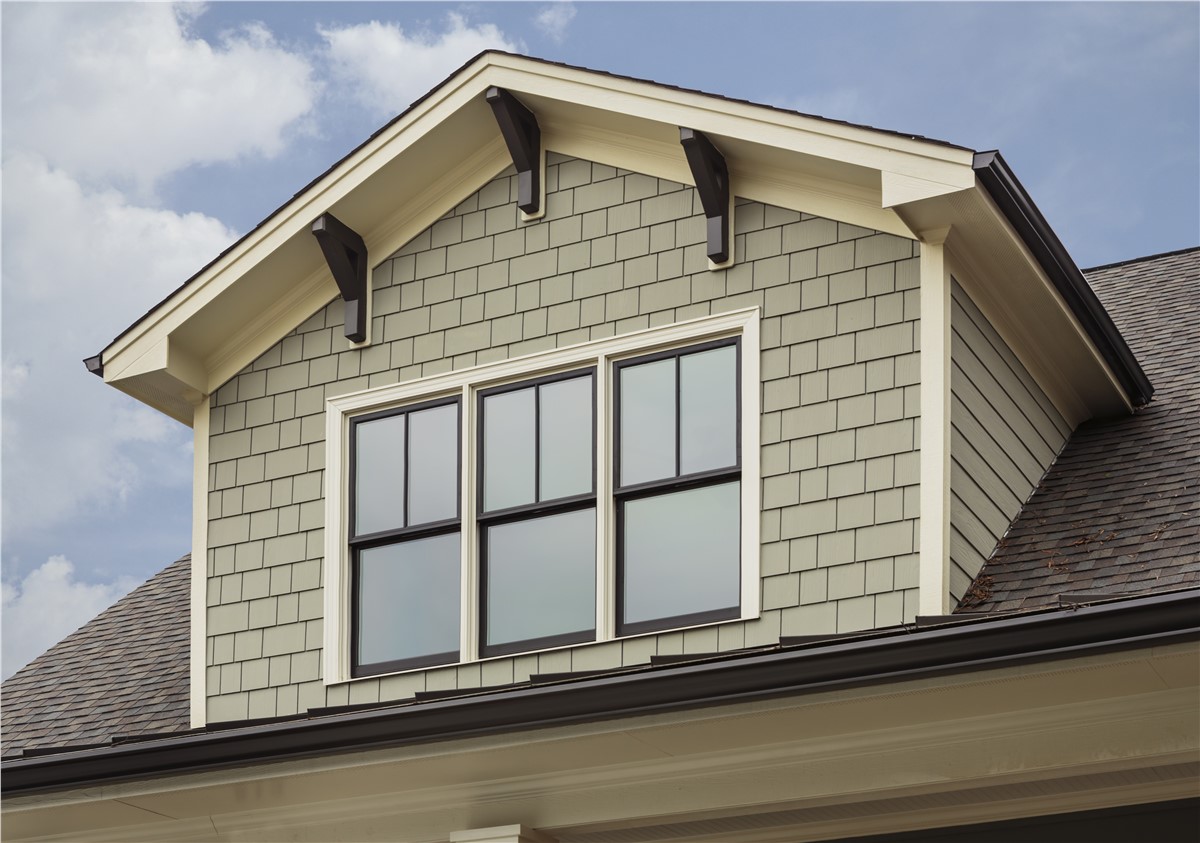
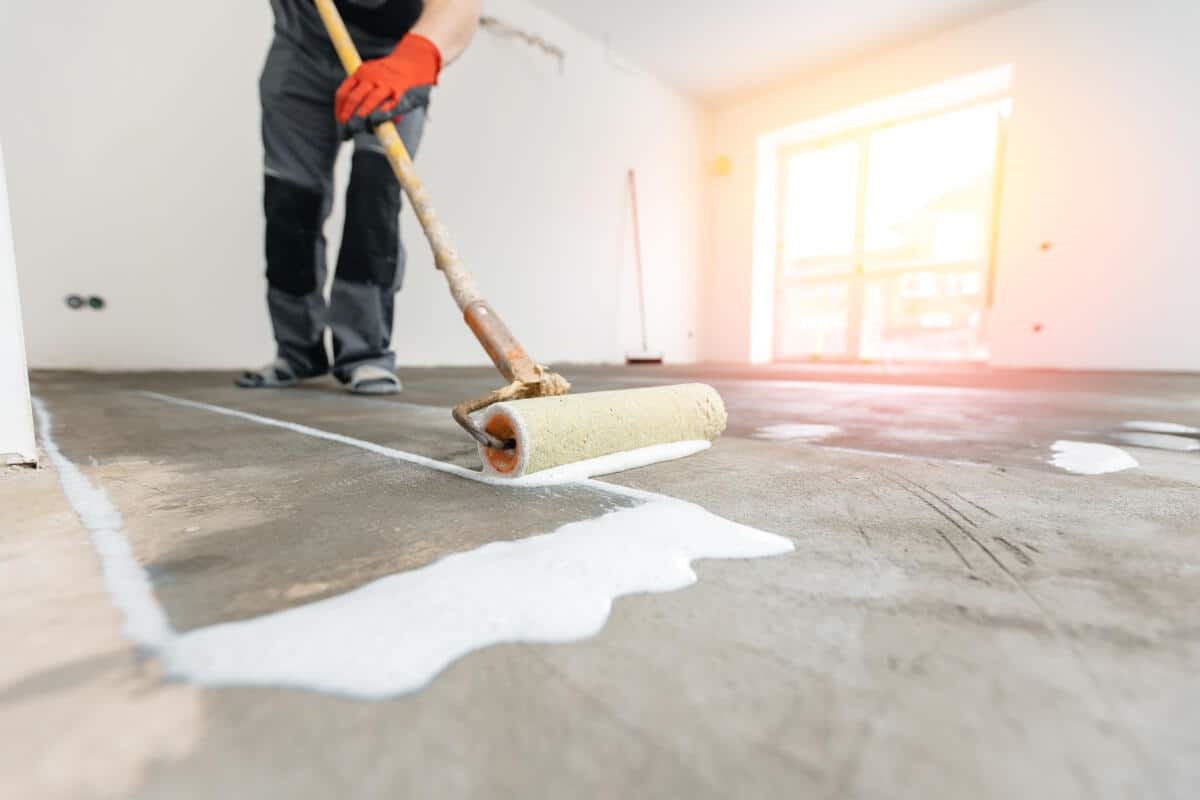
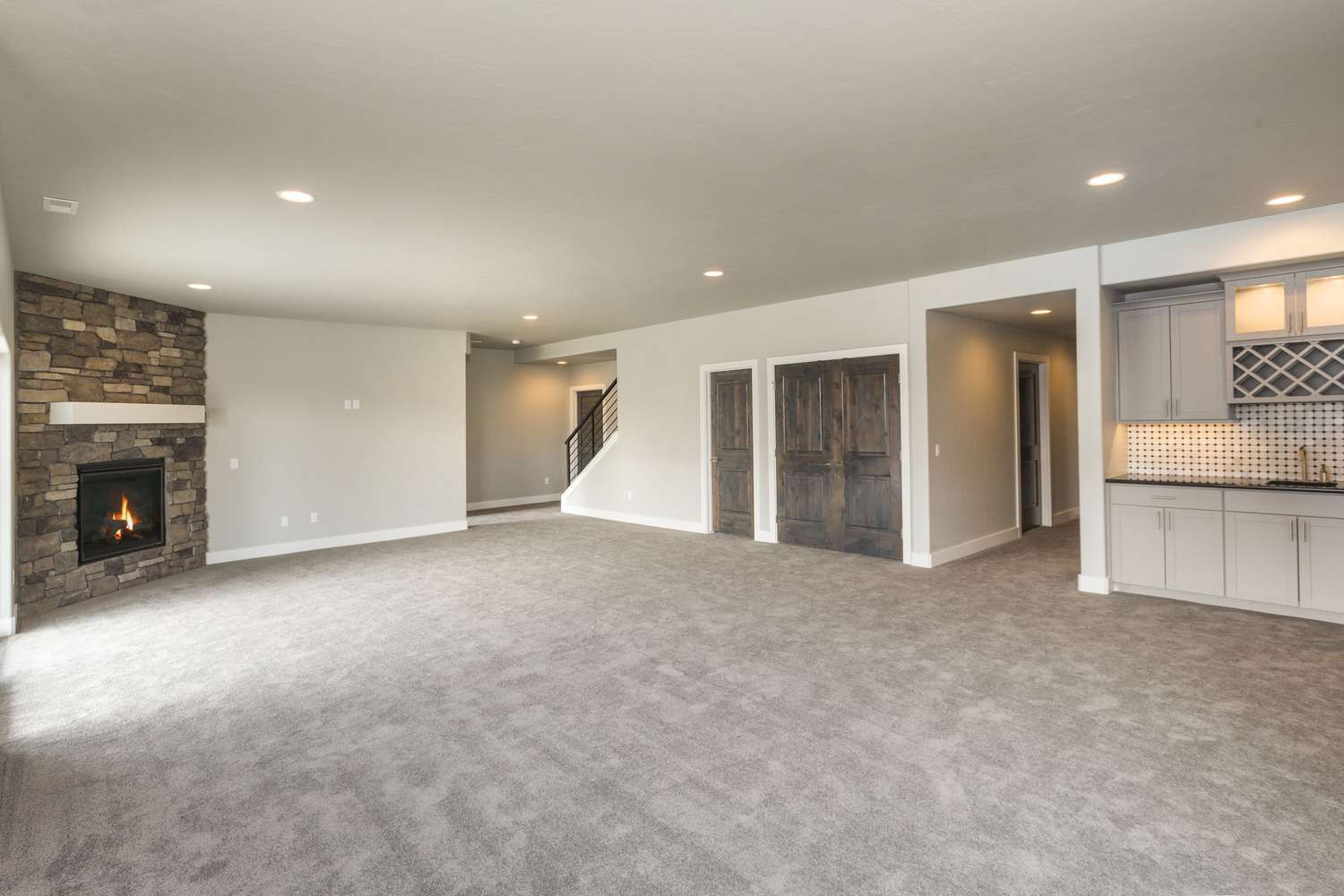
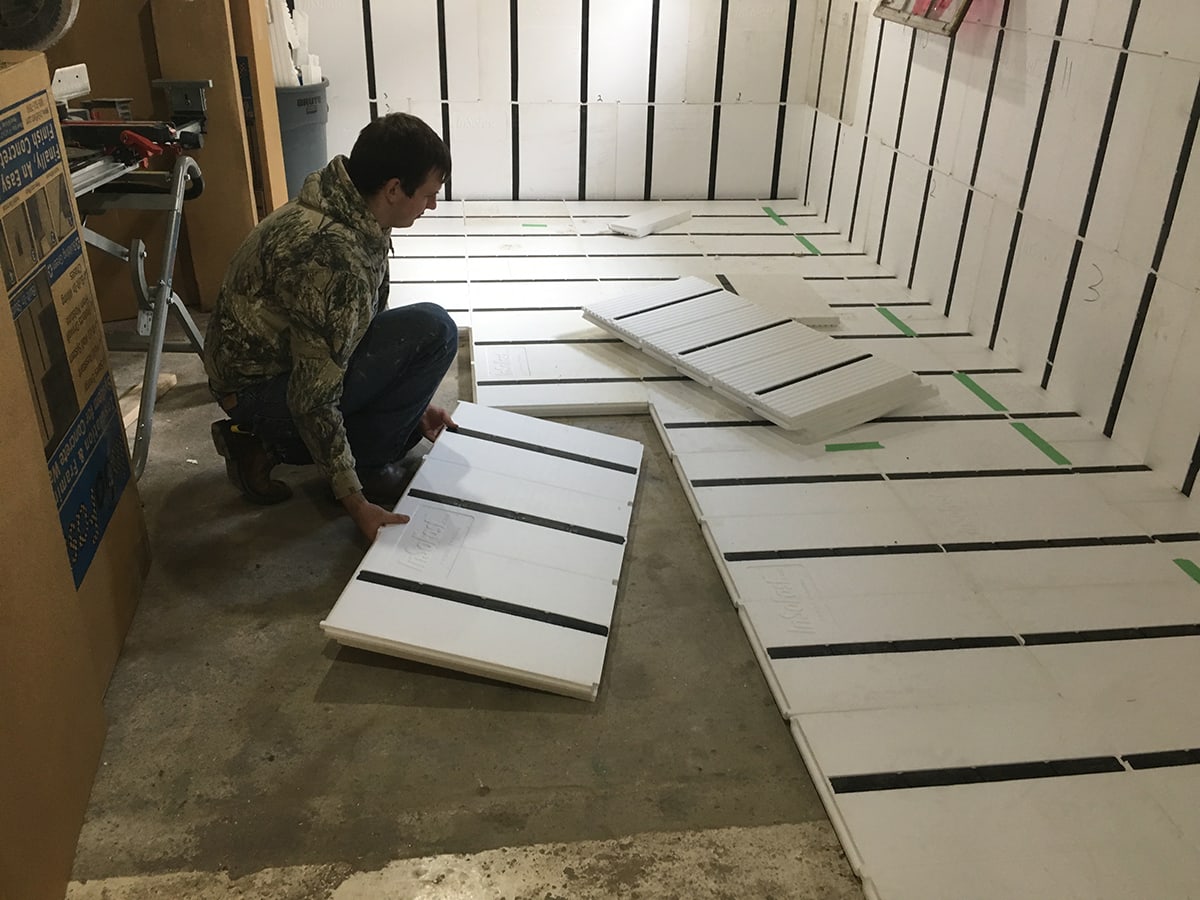
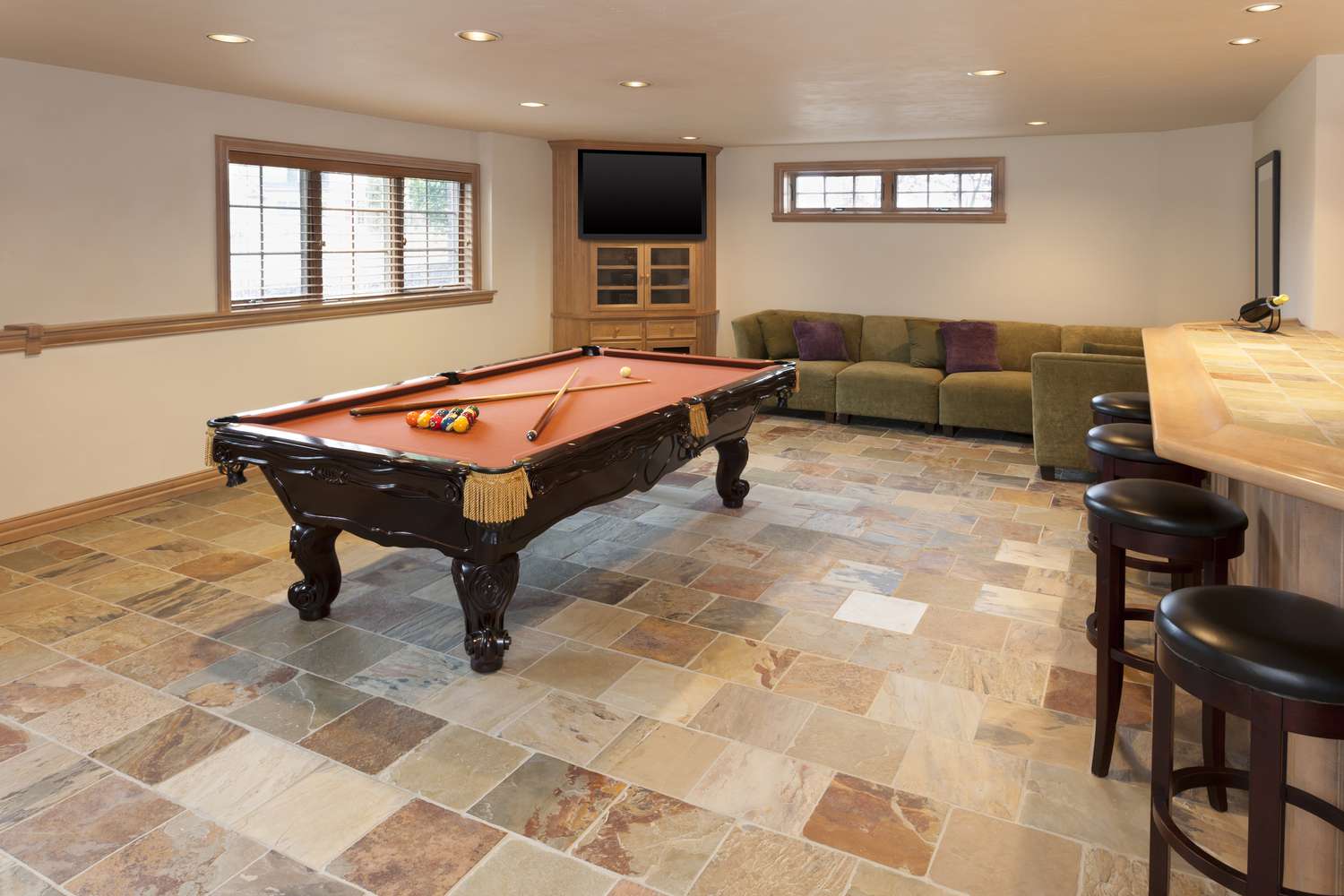
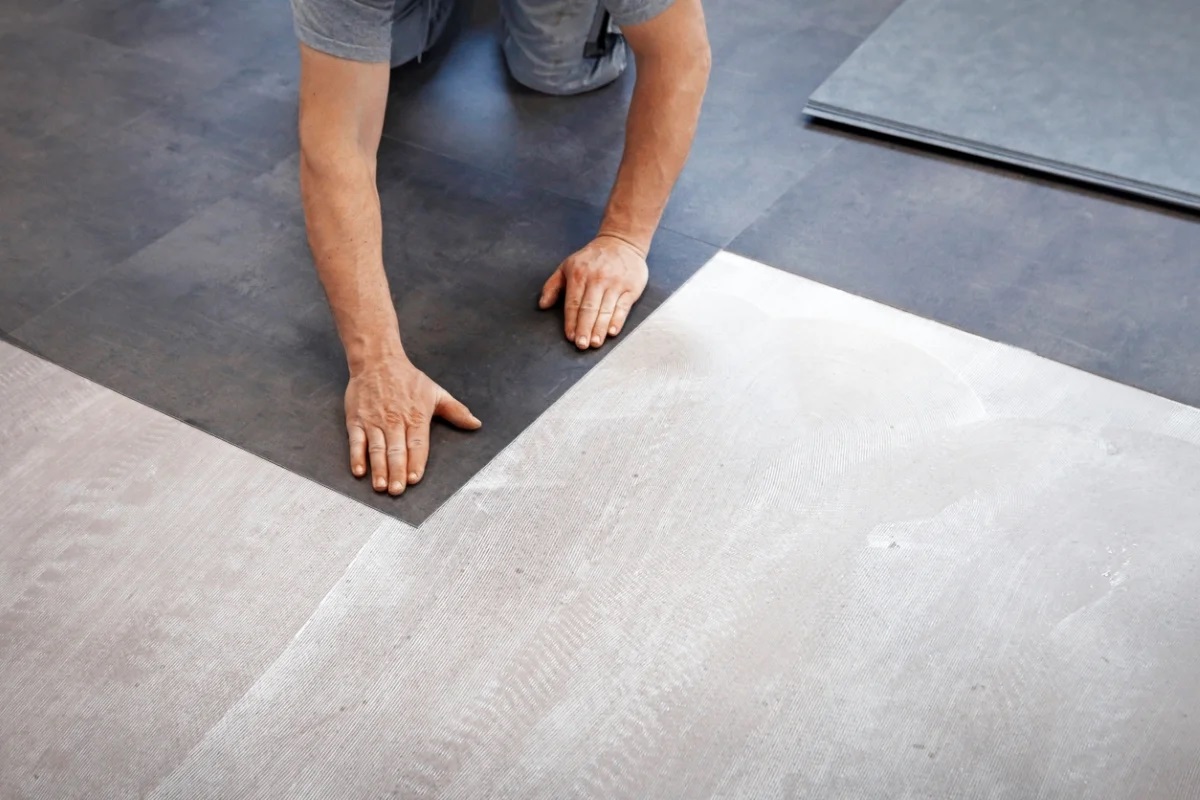
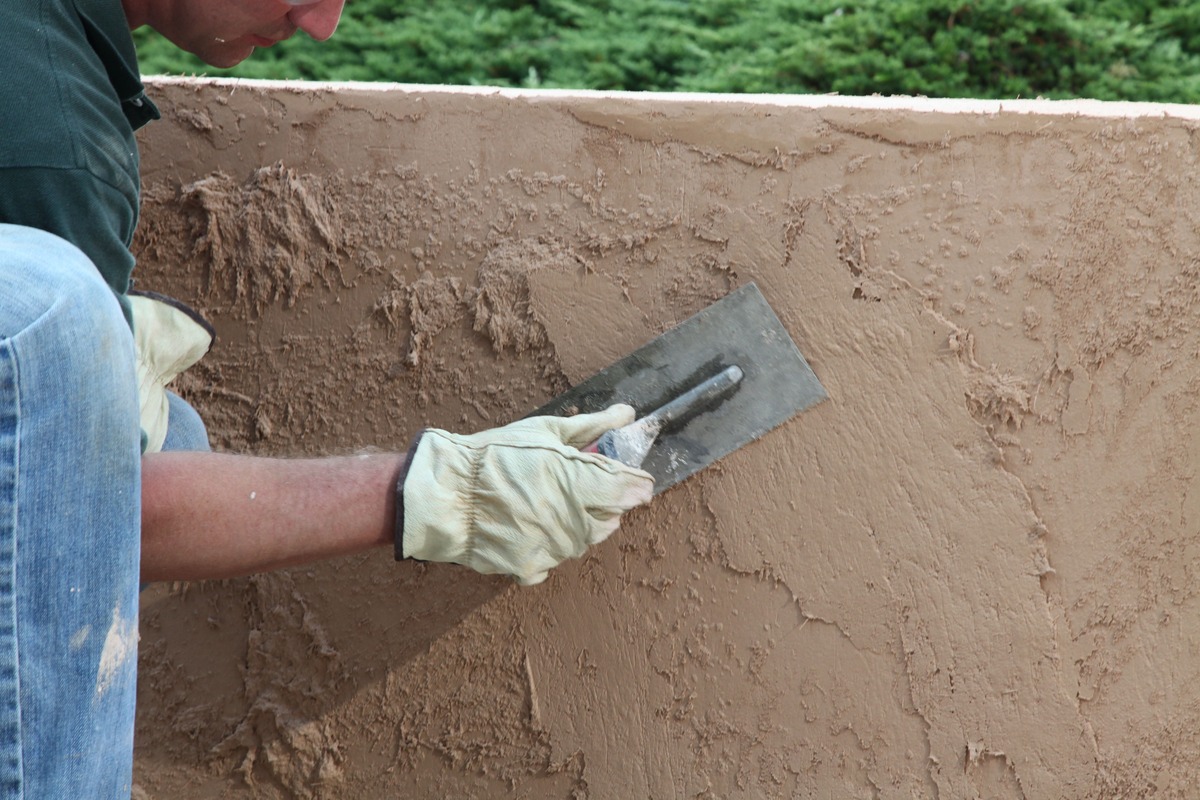
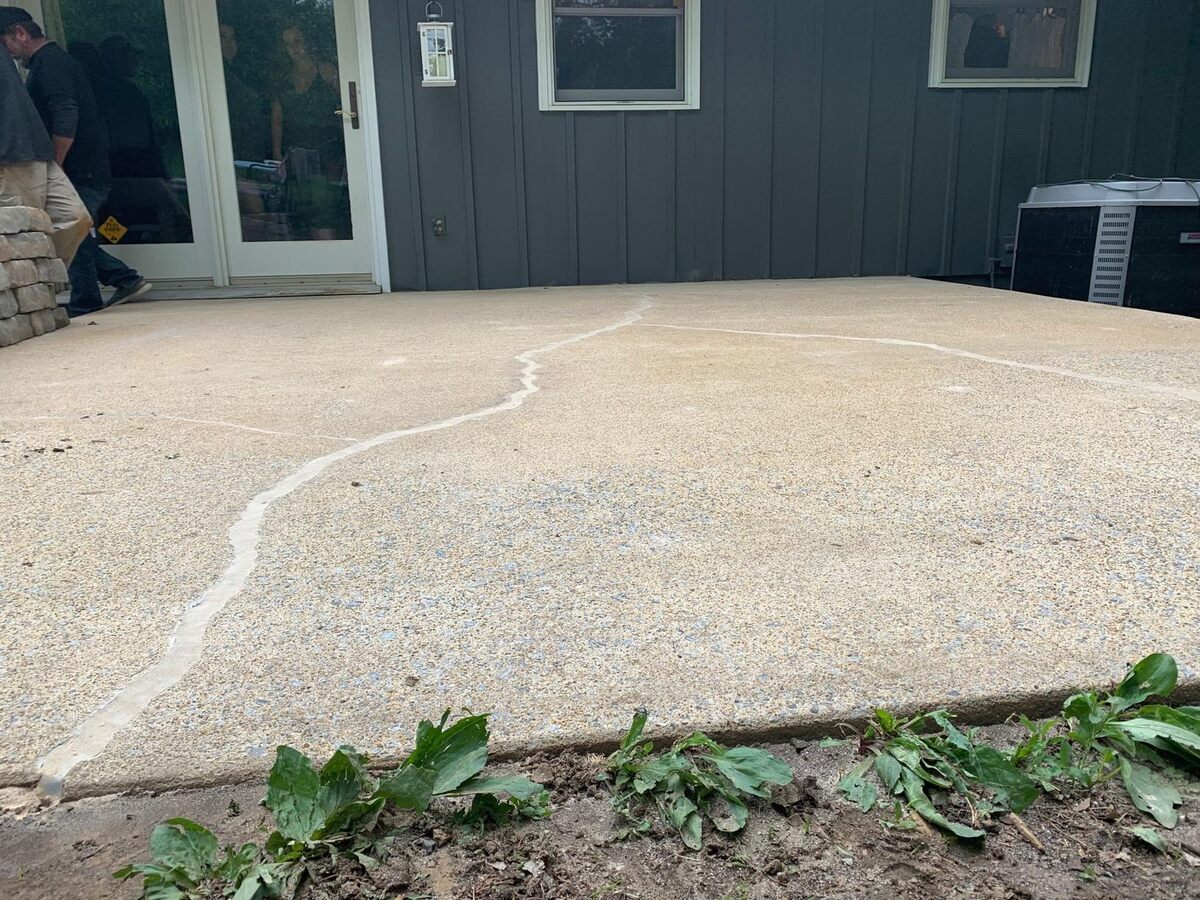
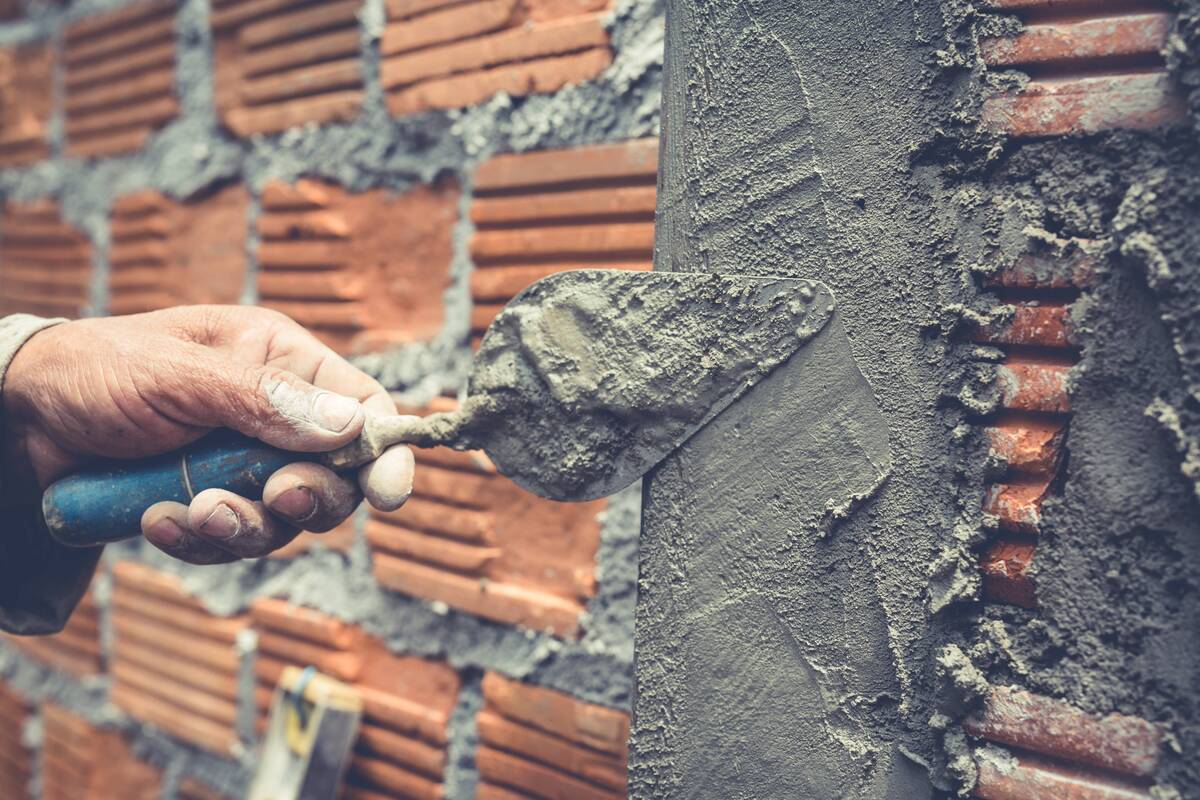
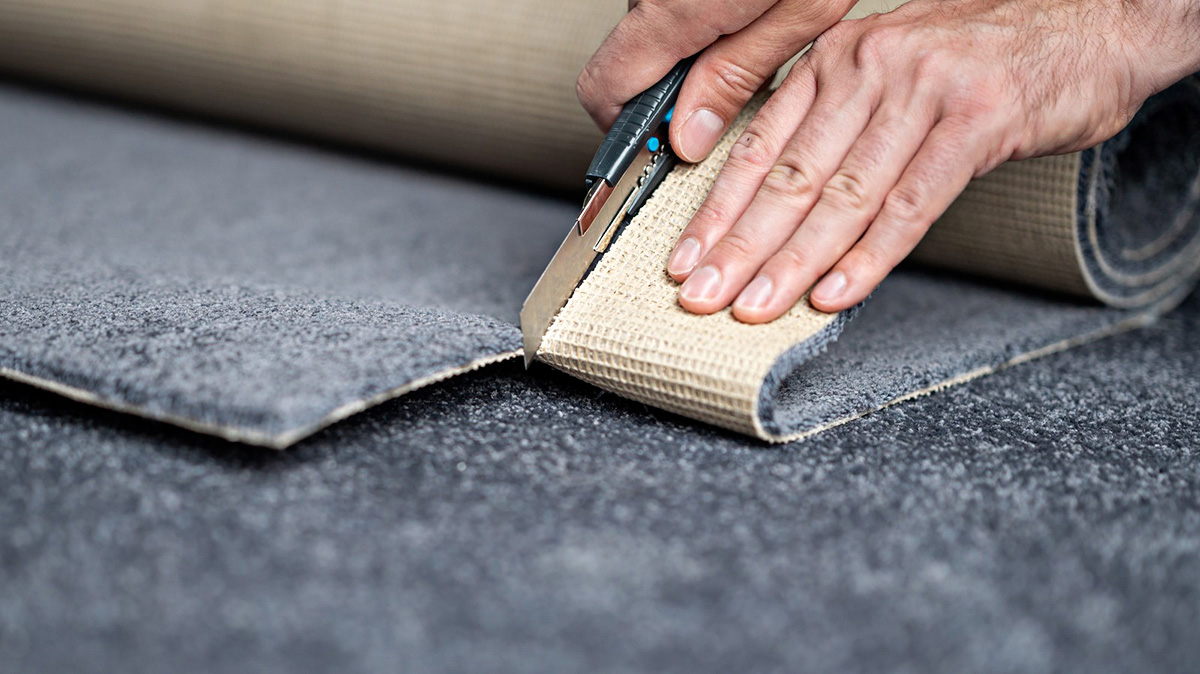

0 thoughts on “What Is The Best Flooring For A Basement Cement Floor?”